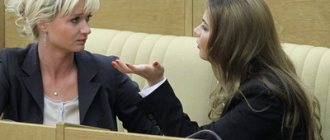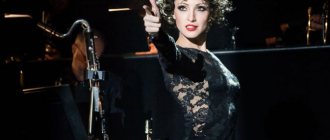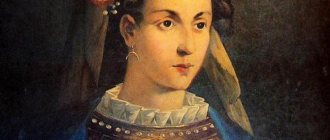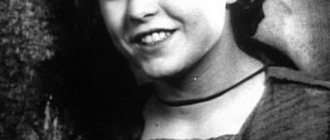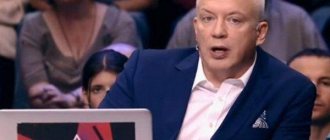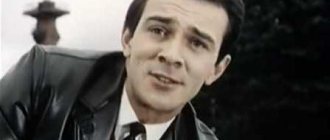Cultivating love for the native land, for the native culture, for the native city, for the native speech is a task of paramount importance, and there is no need to prove it. But how to cultivate this love? It starts small - with love for your family, for your home. Constantly expanding, this love for one’s native turns into love for one’s state, for its history, for its past and present, and then for all of humanity. D.S. Likhachev
We live in an age of rapid development of communications and increasing mobility. Not only life has changed, but we ourselves have changed. We know much more about ourselves and our country than before, we see more, we think about more. Meanwhile, the debate continues in the media about whether it is necessary to cultivate love for the Motherland. And the voices of those who express a negative judgment on this matter are very loud. Patriotism, supposedly, should enter a person naturally. The homeland is obliged to take care of its children, shower them with benefits, become an authoritative, powerful power, such that each of us wants to love it. But who will shower us with benefits, and is it possible to determine the amount of benefits sufficient for a person to begin to love his Motherland? If we don’t teach a child to love his country, who will need it? Who will rejoice and be proud of her achievements and be pained by her sorrows? The fate of the Motherland is in the hands of man, and waiting for the moment when it is worthy of his love is, at least, not reasonable. The homeland is what we make it ourselves.
The feeling of love for the Motherland is one of the strongest feelings; without it, a person is flawed and does not feel his roots. Whether a person feels attached to his native land or moves away from it depends on the circumstances of his life and upbringing. Therefore, it is important that a child from an early age feels personal responsibility for his native land and its future.
In order for children to become bearers and creative successors of the cultural traditions of their people, it is necessary to introduce them, convince them of the value of these traditions, introduce them to them, and develop the habit of following them. It is necessary to think through the education program in kindergarten in such a way as to raise children’s knowledge of the customs and traditions of their city and region to a higher level.
My portfolio
The potential of preschool age as a period of personality formation is unique. And the point is not even that it is at this age that one can more effectively develop the capabilities of the individual, but that in later periods these opportunities are lost and it is most often not possible to make up for what was lost in preschool childhood at school. But it is precisely on how a child perceives the world around him in childhood that his school years, and later life successes of an adult, largely depend.
Add educational material to portfolio Code for inserting a list of publications on other sites
My publications:
Add certificate to portfolio
Colonel, Honored Master of Sports and two-time Olympic champion Svetlana Khorkina celebrates her birthday. In the world of sports, Svetlana is called nothing less than the “queen of the uneven bars.” Why didn’t the coaches believe in Khorkina? You will find out in the program from the series “Born in the USSR”. Read more in the report of MIR 24 TV channel correspondent Vladimir Seroukhov.
“You have a test. Well done! Why are you landing back like that? Do you know why we don't win until the end? Confidence is lacking. Always believe in yourself,” the athlete tells the children during training.
Not everyone believed in Khorkina herself, and not right away. Today she is one of the heads of the forge of Olympic personnel. And as a child, they strongly doubted the athletes’ abilities.
“There was a question about me because I was thin and sickly-looking,” said Khorkina.
It was as if nature itself was saying: to be Khorka’s ballerina, and not an artistic gymnast. But she herself thought differently. Until I was accepted into the sports section, I studied at home. My father built the shells right in the communal apartment where the family lived. There Sveta learned the first tricks, repeating after the athletes from TV.
“I jumped onto a stool, from a stool to a rope, from a rope to a trapeze, from a trapeze to a closet, from a closet to my parents’ bed, from a bed to my sofa. And so in a circle,” recalls the two-time Olympic champion.
Because of her special figure, it was not easy for her to get into professional sports. The coaches simply didn’t notice Svetlana. Everyone except Boris Pilkin.
“So he took her as a little girl. Well, the incompetent girl was absolutely worthless. And it seems to be long, how can I fold it according to all the drawings?” – noted the Honored Master of Sports of the USSR, Olympic champion in artistic gymnastics in 1956 and 1960. Lydia Ivanova.
Pilkin folded it several times. Together with Khorkina, more than one Olympics awaited them, although skeptics wanted to destroy this tandem.
“Boris Vasilyevich, you see, the girl does everything. But it's long, like a hose. They say it won't make any sense anyway. Stop it, they say. Don’t engage with her,” recalls Pilkin.
Boris Vasilyevich was very resourceful. In order for Sveta to decide on new tricks, he resorted to a trick. At that time, Svetlana collected calendars with photographs of idol athletes.
“He, casually, laid out calendars, knowing in advance which ones I didn’t have. And he says: if you make an element, I’ll give it to you. For a calendar, I say? Of course I will!” – says the athlete herself.
Khorkina's career began in the 1990s. At the Olympic Games in Atlanta, the Russian team almost starved.
“There were very difficult times, we dried bread on radiators in order to go to training. It was,” recalls four-time Olympic champion in artistic gymnastics Alexei Nemov.
The real drama unfolded with Khorkina at her second Olympics, in Sydney. She was the absolute favorite, but missed out on winning the all-around in the final seconds.
“An incredible thing happened during the vault. Svetlana fell and broke her knees. It turned out that the shell was installed 5 centimeters below normal,” the announcer explained.
This did not unsettle Svetlana. On the next apparatus she performed flawlessly and received gold.
“When she won the uneven bars at the Olympics in 2000, she came up and kissed the bars, and that, you know, it affected my self-awareness. Because I thought she was so frivolous. And prove that she is the best,” Nemov said.
From big sports, Khorkina went to television, theater, and then jumped even higher - to the State Duma. But she never went abroad to train foreigners, like many of her colleagues. Today Svetlana trains young children in the laboratory of champions - the CSKA school. Why Khorkina performed in the back of a truck and much more, you will learn from the “Born in the USSR” program.
Biography of Svetlana Khorkina
At the Olympic Games in Atlanta in 1996, Khorkina became first on the uneven bars and second in the all-around. The 2000 Olympics in Sydney again brought the athlete gold on the uneven bars, as well as silver in the floor exercise. From 1995 to 2001, she became the first in all competitions held on uneven bars. Many of the elements performed by Khorkina on the uneven bars were complex and invented specifically for her due to her high stature, which is not typical for gymnasts.
At the 2004 Athens Olympics, Khorkina won a silver medal in the all-around and became the second gymnast in history to win three Olympic Games.
At the end of August 2004, Khorkina announced her retirement from her sports career.
On December 21, 2004, Khorkina took the post of vice-president of the Russian Artistic Gymnastics Federation (FSGR).
Svetlana Khorkina has been a member of the United Russia party since 2003. From 2007 to 2011 - deputy of the State Duma of the Federal Assembly of the Russian Federation of the fifth convocation.
In October 2012, Khorkina received the position of assistant in the Control Directorate of the President of Russia.
In 2002, the gymnast became a candidate of pedagogical sciences. She defended her dissertation on the topic “Study of sports and gymnastic exercises using linear didactic programming.”
In the same year, Svetlana Khorkina made her debut as an actress in the play “Venus” by the theater company of Sergei Vinogradov. The play is based on the texts of the famous American writer Henry Miller and his book of love letters, Dear, Dear Brenda. Khorkina played the main female role in the play.
After leaving sports, Khorkina actively participated in various television projects. She appeared in “Circus with the Stars” and “Dancing with the Stars”, and was the host of the reality show “Dom-1”.
On October 7, 2013, Svetlana Khorkina took part in the first leg of the torch relay at the 2014 Winter Olympics in Sochi.
Svetlana Khorkina is a two-time Olympic champion in parallel bars, three-time absolute world champion and three-time absolute European champion. Absolute champion of Russia (1993, 1995, 1997). Multiple champion of Russia in vault, uneven bars, balance beam, and floor exercise. Winner of the Russian Cup in 1995, 1997, 1998, 2000 in all-around. Honored Master of Sports of Russia. She was awarded the Order of Merit for the Fatherland, IV degree, the Order of Honor and Friendship, and the Honorary Badge of Sports Glory of Russia.
In 2007, a monument was erected in Belgorod in honor of Svetlana Khorkina. Svetlana has a son, Svyatoslav (born July 21, 2005). According to media reports, in May 2011 she married FSB General Oleg Kochnov.
The material was prepared based on information from RIA Novosti and open sources.
Svetlana Khorkina brought her husband into the world [Audio]
Svetlana Khorkina never liked to advertise her personal life: neither at the time when she performed on the gymnastics platform, nor during her activities as a deputy of the State Duma.
Which seemed a little strange, because Svetlana received the unofficial title of the sex symbol of Russian sports after participating in a number of daring photo shoots for men's magazines and was one of the most desirable brides in Russia.
In 2005, a year after finishing her sports career, the beauty gave birth to a son, Svyatoslav. Nothing was known about the child's father. Khorkina herself said that she gave birth to a baby for herself.
The sharks of the pen could not find rest, and the role of the child’s father was taken on by Hollywood actor Levan Uchaneishvili. But it later became clear that this was just a cover operation. This whole puzzling multi-step was explained simply: Khorkina fell in love not only with a handsome and rich man, but also with a married man.
The name of billionaire Kirill Shubsky, who is related by marriage to the famous actress Vera Glagoleva, has come up. Khorkina described in detail the history of her relationship with “Mr. X” in her autobiographical book “Somersaults in Heels.”
However, the gymnast’s lover did not leave the family even after the birth of his son Svyatoslav.
Six years have passed, and the other day, at an evening dedicated to the 20th anniversary of the Russian Stuntmen Association, Svetlana appeared in public for the first time, accompanied by a new life partner. He became General of the Special Services Oleg Kochnov, who some time ago headed the internal security service of the North-Western Customs Administration. As our colleagues from Express Newspaper told us, Svetlana and Oleg got married about a month ago.
We phoned the organizer of this gala event, President of the Stuntmen Association, Alexander Inshakov, which brought together all the cream of society.
— Alexander Ivanovich, tell us more about your guests...
“I invited Khorkina, but I didn’t know her companion; she brought him herself. Svetlana and I have known each other for a very long time. She is an Olympic champion, and we often met at various sporting events.
-Are they really husband and wife?
— I don’t comment on such things.
Later we got through to Svetlana herself.
— Svetlana, can I congratulate you?
— If you want to talk about my work, call my reception. “I don’t discuss my personal life,” Khorkina said and hung up.
Vasily Khorkin, Svetlana’s father: I didn’t give them a parental blessing. Komsomolskaya Pravda also got through to Svetlana’s father, Vasily Khorkin:
— Vasily Vasilyevich, there are rumors that your daughter Svetlana got married. This is true?
- Yes... He turned 55 the other day. However, I didn’t give them my parents’ blessing...
— Svetlana’s son Svyatoslav accepted Oleg Kochnov?
“The child is only five and a half years old, and he doesn’t understand a lot.” I don't know if he will accept it. Svyatoslav is happy about his father, businessman Kirill Shubsky. Kirill recently brought the boy a puppy - a German shepherd.
— How long ago did Svetlana and Oleg Anatolyevich legalize their relationship?
— The tournament for Khorkina prizes was held in Belgorod from April 15 to 17. At some point, we escaped to the capital and signed there.
Recorded by Evgenia GREBENIK.
